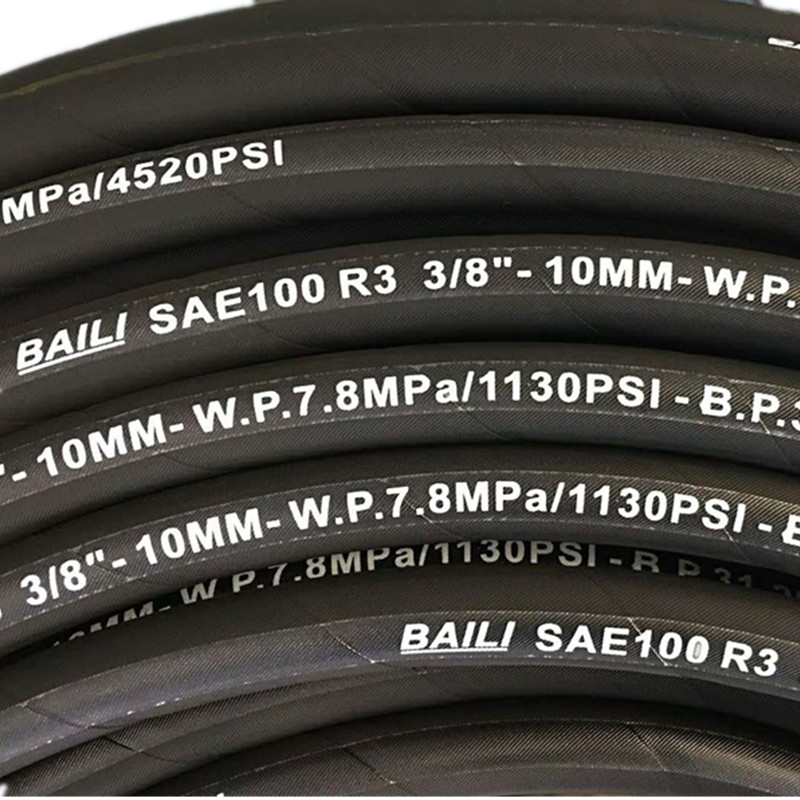दिसम्बर . 07, 2024 14:51 Back to list
high quality non-conductive r7 hose products
High-Quality Non-Conductive R7 Hose Products An Overview
In industries where fluid transfer is crucial, the choice of hoses can significantly impact safety and efficiency. Among various options, high-quality non-conductive R7 hoses stand out as a reliable choice for many applications. These hoses are designed to handle fluids without conducting electricity, making them essential in sectors where electrical safety is paramount.
What is R7 Hose?
The R7 hose is a specific type of thermoplastic hydraulic hose designed to meet particular industry standards. It is recognized for its flexibility, lightweight structure, and capability of handling moderate pressures. The designation R7 refers to a specific construction that conforms to the standards set by organizations such as the Society of Automotive Engineers (SAE). R7 hoses are engineered to withstand both high and low temperatures, making them suitable for a variety of environments.
Benefits of Non-Conductive R7 Hoses
One of the primary benefits of using non-conductive R7 hoses is their ability to provide safety in electrically charged environments. Many industrial applications, such as in the construction, mining, and agricultural sectors, involve the use of electrical equipment. Using conductive hoses in these environments poses significant risks, including the potential for electrical shocks and equipment malfunctions. Non-conductive R7 hoses eliminate these risks, offering peace of mind to operators and significantly enhancing workplace safety.
Furthermore, R7 hoses are known for their durability and resistance to abrasion, which is particularly beneficial in harsh working conditions. Their resistance to a wide range of chemicals also makes them versatile for various fluid transfer applications, including petroleum-based products and water. The thermoplastic construction ensures flexibility while maintaining structural integrity, allowing for easy maneuvering and installation in tight spaces.
Application Areas
high quality non-conductive r7 hose products

Non-conductive R7 hoses are widely used in several industries, including hydraulics, automotive, and manufacturing. In hydraulic systems, these hoses are typically used to transfer hydraulic fluids under pressure, critical for operating machinery efficiently. The non-conductive feature adds a layer of safety, preventing accidents in case of electrical malfunctions.
In the automotive industry, R7 hoses are often utilized for fuel lines and other applications where non-conductive properties are essential
. Similarly, in manufacturing settings, they facilitate the transfer of various fluids, ensuring that processes run smoothly without compromising safety.Choosing the Right R7 Hose
When selecting high-quality non-conductive R7 hoses, it is essential to consider several factors. Firstly, evaluate the specific application requirements, such as the type of fluid being transferred and the pressure ratings needed. Ensure the hose is rated for the expected working conditions, including temperature extremes and environmental factors.
Another crucial factor is the manufacturer’s reputation. Opt for hoses from reputable brands that adhere to industry standards and provide certifications for their products. Quality assurance is key to ensuring that the hoses perform optimally and offer long-lasting service.
Conclusion
High-quality non-conductive R7 hose products are indispensable in various industries, providing safety and reliability for fluid transfer applications. Their unique properties, such as flexibility, durability, and resistance to electrical conductivity, make them an excellent choice for any operation where safety concerns are prevalent. By carefully selecting the right non-conductive R7 hose, businesses can enhance safety and efficiency, ultimately contributing to a more productive working environment.
In summary, investing in high-quality non-conductive R7 hoses is a strategic decision that pays dividends in safety and operational effectiveness, underscoring their importance in today's industrial landscape.
-
Best Four Steel Wire Spiral Hose Hydraulic R12 – Durable High-Pressure Hose Manufacturer
NewsJul.08,2025
-
High-Quality 1/4 Hydraulic Hose – Soft, Flexible & Durable Rubber Hoses for Industrial Use
NewsJul.08,2025
-
1 1 2 Inch Hydraulic Flexible Hose - Durable, Reliable, High-Pressure Solutions
NewsJul.07,2025
-
High-Quality 1 2 Rubber Hose - Durable, Flexible Hydraulic Solutions
NewsJul.07,2025
-
Discover SAE Hydraulic Hose Types - High Quality & Durable Hoses from Leading Factory Supplier
NewsJul.06,2025
-
High Pressure Wire Hydraulic Rubber Hose Supplier Durable & Reliable 1SN Hose Solutions
NewsJul.06,2025
